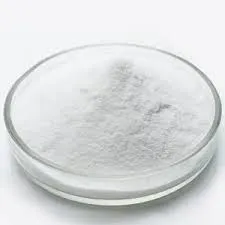
Nov . 20, 2024 17:01 Back to list
what is hydroxyethyl cellulose used for
Understanding Hydroxyethyl Cellulose and Its Applications
Hydroxyethyl cellulose (HEC) is a non-ionic, water-soluble polymer derived from cellulose, a natural polymer found in the cell walls of plants. With a variety of unique properties, HEC has become an essential ingredient in a wide array of industries, including cosmetics, pharmaceuticals, and construction. Its versatility is largely attributed to its ability to enhance the performance of various products, making it a valuable additive in many formulations.
Chemical Properties of Hydroxyethyl Cellulose
HEC is produced through the etherification of cellulose with ethylene oxide, resulting in a polymer that retains the inherent characteristics of cellulose while gaining new functionalities. One of the most notable properties of HEC is its ability to form a transparent gel in water, which is crucial for applications that require thickening and stabilizing solutions. Additionally, HEC is known for its excellent film-forming abilities, making it suitable for use in coatings and personal care products.
Applications in Personal Care and Cosmetics
In the realm of beauty and personal care, hydroxyethyl cellulose plays a pivotal role as a thickener and emulsifier in lotions, creams, shampoos, and conditioners. Its ability to enhance the viscosity of formulations helps achieve the desired texture and consistency, making products more appealing to consumers. Moreover, HEC acts as a stabilizing agent in emulsions, preventing the separation of oil and water phases. It also contributes to the moisturization of products, giving skin and hair a softer and smoother feel.
Besides its thickening properties, HEC is often used in cosmetic formulations for its ability to form a protective film on the skin or hair, helping to retain moisture and enhance the effectiveness of active ingredients. This film-forming capability is particularly beneficial in sunscreens and anti-aging products, where prolonged adherence to the skin is essential for optimal performance.
Pharmaceutical Applications
what is hydroxyethyl cellulose used for

In the pharmaceutical industry, hydroxyethyl cellulose is frequently utilized as a binder, coating agent, and drug delivery enhancer. Its water-soluble nature allows for the controlled release of active ingredients, making it an ideal choice for formulating sustained-release medications. Additionally, HEC is often employed in the production of gels and ointments, where it acts as a thickening agent to achieve the desired consistency and stability.
Furthermore, hydroxyethyl cellulose can be found in ophthalmic preparations, such as eye drops. Its viscosity-enhancing properties improve the retention time of the drug in the eye, providing prolonged therapeutic effects and increased comfort for the patient.
Construction and Building Materials
Another significant application of hydroxyethyl cellulose lies in the construction industry. HEC is commonly used as a thickener in cementitious materials, improving workability and adhesion during the application process. Its water retention capabilities enhance the performance of mortars and plasters, which is particularly important in preventing cracking and ensuring durability.
Moreover, HEC contributes to the overall sustainability of building materials by reducing the amount of water needed in construction applications. This not only aids in the performance of the final product but also addresses eco-friendly initiatives aimed at reducing water usage in construction.
Conclusion
In summary, hydroxyethyl cellulose is a versatile polymer with a wide range of applications across various industries. Its thickening, stabilizing, and film-forming properties make it an essential ingredient in cosmetics, pharmaceuticals, and construction materials. As industries continue to evolve, the demand for effective and sustainable additives like hydroxyethyl cellulose is expected to grow, highlighting the importance of this remarkable substance in modern formulations and materials. Whether enhancing personal care products or improving construction methods, HEC continues to prove its value in a multitude of applications, showcasing the incredible potential of natural polymers in the contemporary market.
-
Versatile Hpmc Uses in Different Industries
NewsJun.19,2025
-
Redispersible Powder's Role in Enhancing Durability of Construction Products
NewsJun.19,2025
-
Hydroxyethyl Cellulose Applications Driving Green Industrial Processes
NewsJun.19,2025
-
Exploring Different Redispersible Polymer Powder
NewsJun.19,2025
-
Choosing the Right Mortar Bonding Agent
NewsJun.19,2025
-
Applications and Significance of China Hpmc in Modern Industries
NewsJun.19,2025







